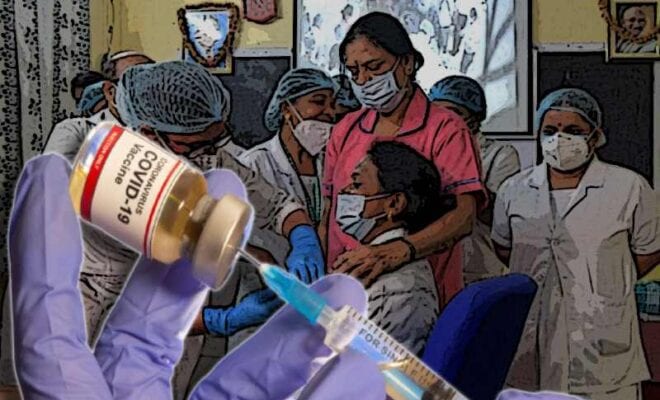Vaccination drive extended in India with longer sessions and all private hospitals included

The second vaccination drive in India that commenced this Monday, March 1, has met with an overwhelming response with over 50 lakh beneficiaries have registered to receive the Covid-19 vaccine. With many centers having reported overcrowding, the Centre has directed states and UTs on Tuesday to rope in all the private hospitals, including the ones that are not under the government health insurance schemes.
The hospitals after consultation with respective state governments can extend the hours of vaccination session, with no compulsion on them being limited to 5 pm. Furthermore, all hospitals and states have been told “to open the vaccination slots for 15 days to a month.” But Co-WIN app is showing open slots for only a week ahead.
In the vaccination drive’s second phase that is into its third day, around 10,000 private hospitals empaneled under Ayushman Bharat, 600 under the Central Government Health Scheme (CGHS), and State Health Insurance were assigned to be vaccination centres. During a high level meeting on Tuesday, states were directed to include all private hospitals to ramp up vaccination in the country. The meeting was chaired by Union Health Secretary Rajesh Bhushan, and also Dr Ram S Sharma, chairman of Empowered Group on Vaccine Administration.
“Private hospitals not empanelled under the above mentioned three categories have also been permitted to operate as COVID Vaccination Centers (CVCs)… States/UTs can proactively make efforts to use these private hospitals as CVCs,” the Health Ministry said.
Overextension of vaccination session duration, Bhushan said, “Co-WIN 2.0 doesn’t provide for a 9 am to 5 pm vaccination session. It has done away with the timeline. If the hospital has the capacity, the system permits the hospital to do vaccinations even after 5 pm. They need to do it in consultation with state governments.”
Regarding the safety concerns of Covaxin and Covishield, ICMR chief Dr Balram Bhargava said that both are extremely safe for administration. He said, “I have said this earlier… the vaccine can be administered on those who are on blood thinners. Those who are having aspirin can continue to have it. Those who are on anti-coagulants have to stop for 1-2 days only because there could be a clot near the injection site. There is no contraindication either related to anti-coagulants or anti-platelets.”



